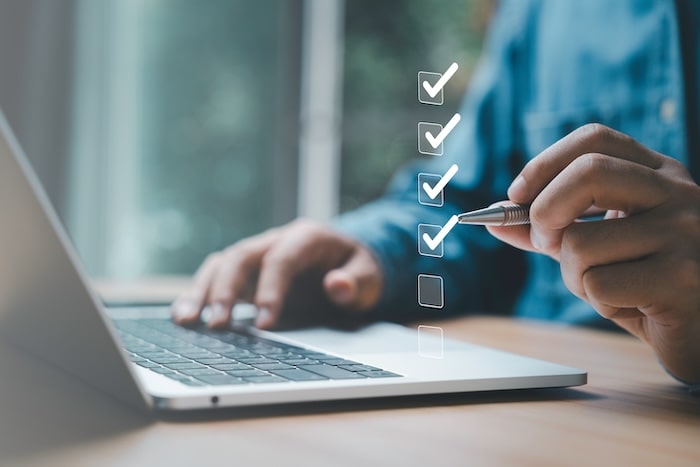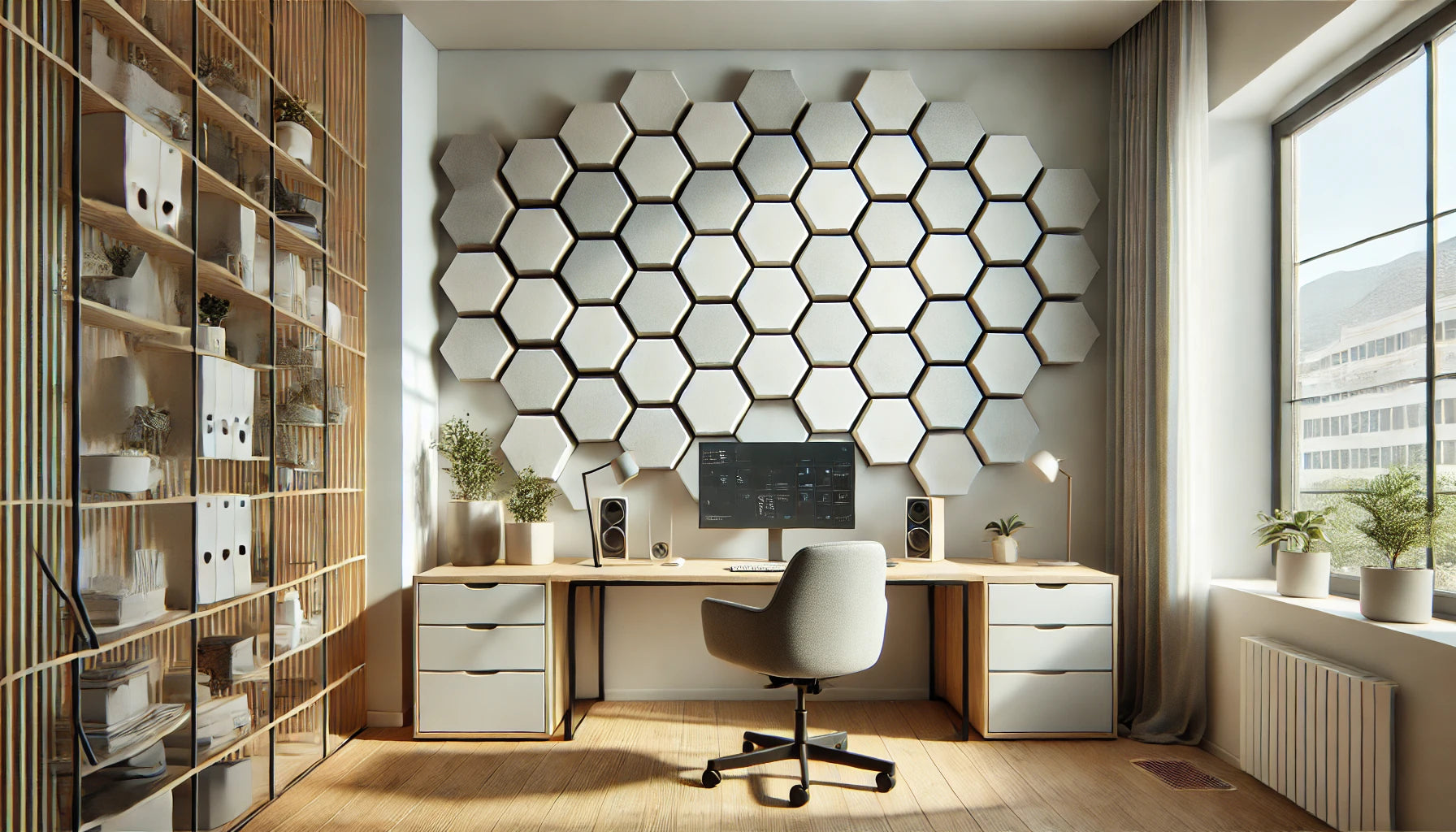Working from home offers many benefits, but requires discipline and clear structures to be truly effective. With the right attitude and a well-designed workspace, you can increase your productivity while also maintaining your physical well-being. Here's a checklist of the most important points to consider:
Checklist for an efficient home office
1. Permanent workplace
2. Ergonomic setup
3. Fixed working hours
4. Regular breaks
5. Avoid distractions
6. Morning routine
7. Social interaction
8. Communication with the team
9. Avoid multitasking
10. Closing ritual
1. Permanent workplace
A dedicated workspace helps your brain differentiate between work and leisure. Whether it's a dedicated room or just a corner of the living room, make sure this space is used only for work. A NOTEUP can help you with this if you don't have a height-adjustable desk by placing your laptop at a comfortable height. Avoid working from bed or the sofa, as these spaces are meant for relaxation.
2. Ergonomic setup
Your sitting posture and work environment have a huge impact on your productivity and health. If you spend a lot of time in front of the computer, ergonomic furniture such as a height-adjustable desk or an ergonomic chair is crucial. HANDSAL , an ergonomic desk assistant, helps you improve your posture and reduce pressure on your wrists. To make your mouse movements smoother, you can use a high-quality felt desk pad such as FELTDESK , which supports soft and precise handling.
3. Fixed working hours
The biggest challenge when working from home is often establishing clear boundaries between work and leisure time. Therefore, it's helpful to set fixed working hours. Use tools like the Pomodoro timer , where you work for 25 minutes followed by a 5-minute break. Repeat this cycle four times before taking a longer break. During these short breaks, you can do stretching exercises or simply take a short walk around the room.
4. Regular breaks
Don't sit in a chair all day! Exercise is essential for your health. Schedule breaks with stretching exercises to relieve tension. A walk in the fresh air can work wonders and improve your concentration. Use tools like the Pomodoro timer to regularly remind yourself to get up.
5. Avoid distractions
Distractions are everywhere, especially at home. Use acoustic elements like these from AKUROMA to minimize outside noise and create a calmer atmosphere. This can be especially helpful if you work in a noisy or echoey room. Also, turn off unnecessary notifications and create an environment where you can fully focus on your work.
6. Morning routine
A structured morning routine can help you start your workday motivated. Set clear steps for yourself: Wake up, eat breakfast, get dressed, and create a brief daily schedule. This transition into the workday creates structure and helps you start the day productively.
7. Social interaction
Isolation is a common side effect of working from home. Consciously schedule breaks to connect with colleagues or friends, whether through phone or video calls. These social contacts will help you avoid loneliness and recharge your batteries.
8. Communication with the team
Even when working from home, it's important to stay in close contact with your team. Use collaboration tools like Slack, Microsoft Teams, or Zoom to provide regular updates and clarify questions. This way, you can avoid misunderstandings and always stay up to date.
9. Avoid multitasking
When working from home, it's tempting to do laundry or other household chores at the same time. Multitasking may sound efficient, but it often leads to stress and errors. Instead, use tools like Focus To-Do to organize your tasks and create a clear list of priorities.
10. Closing ritual
At the end of the workday, it's helpful to develop a ritual that signals that the workday is over. Close your laptop, make a to-do list for the next day, or tidy your desk. Practical tools like SCIT cable ties can also help you organize cables, so your workspace is tidy and ready for the next workday at the end of the day.



Leave a comment
This site is protected by hCaptcha and the hCaptcha Privacy Policy and Terms of Service apply.